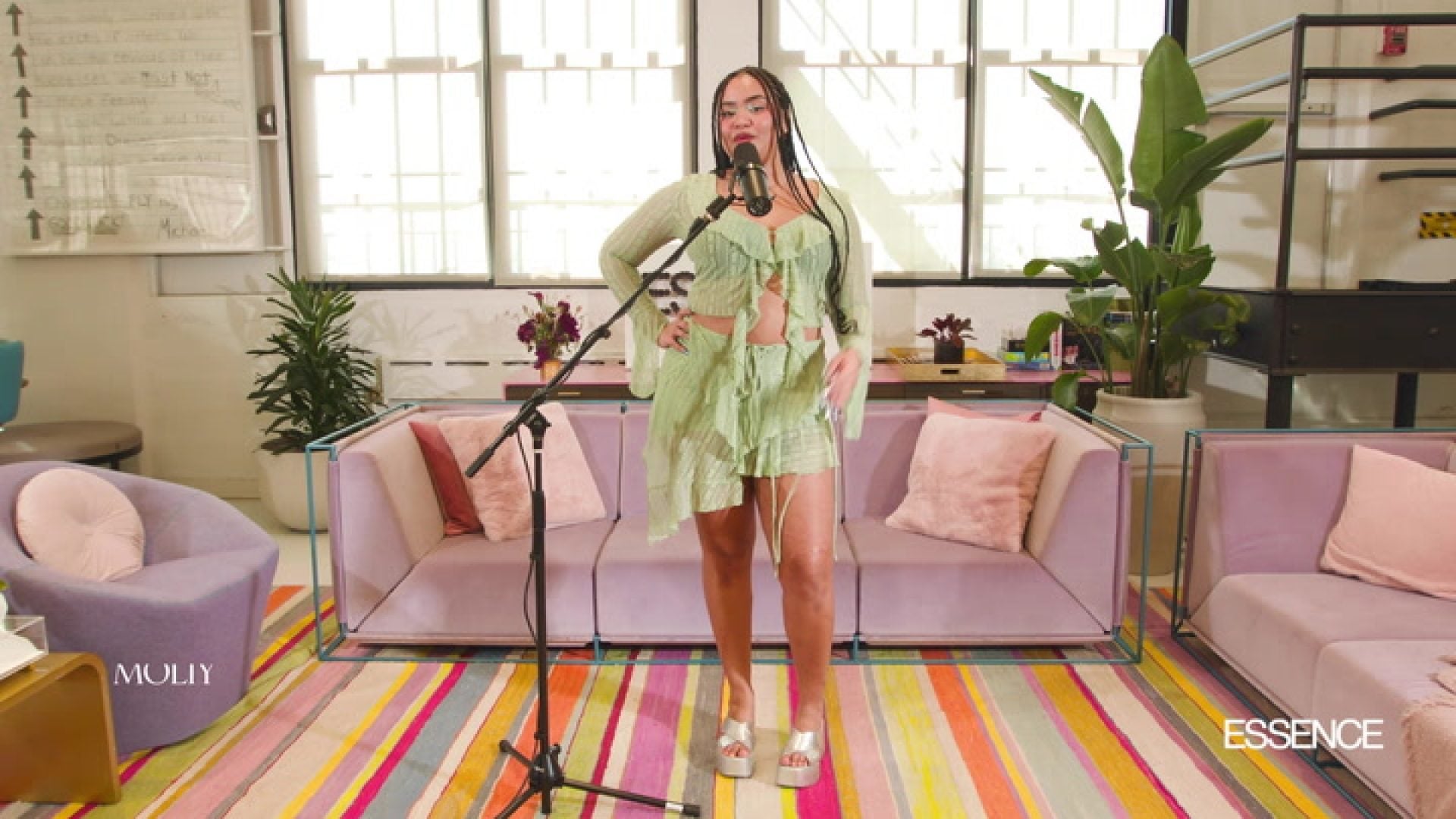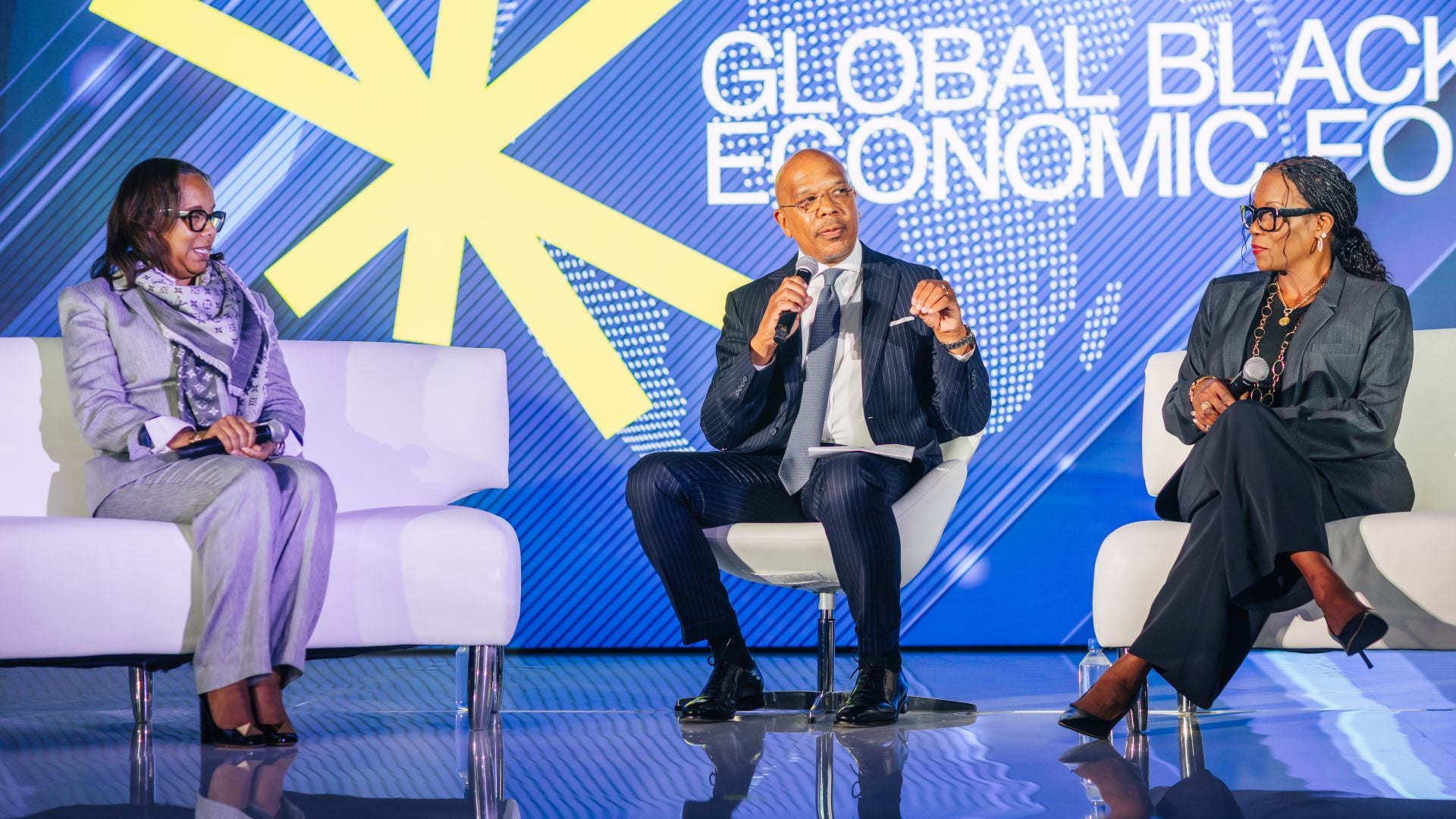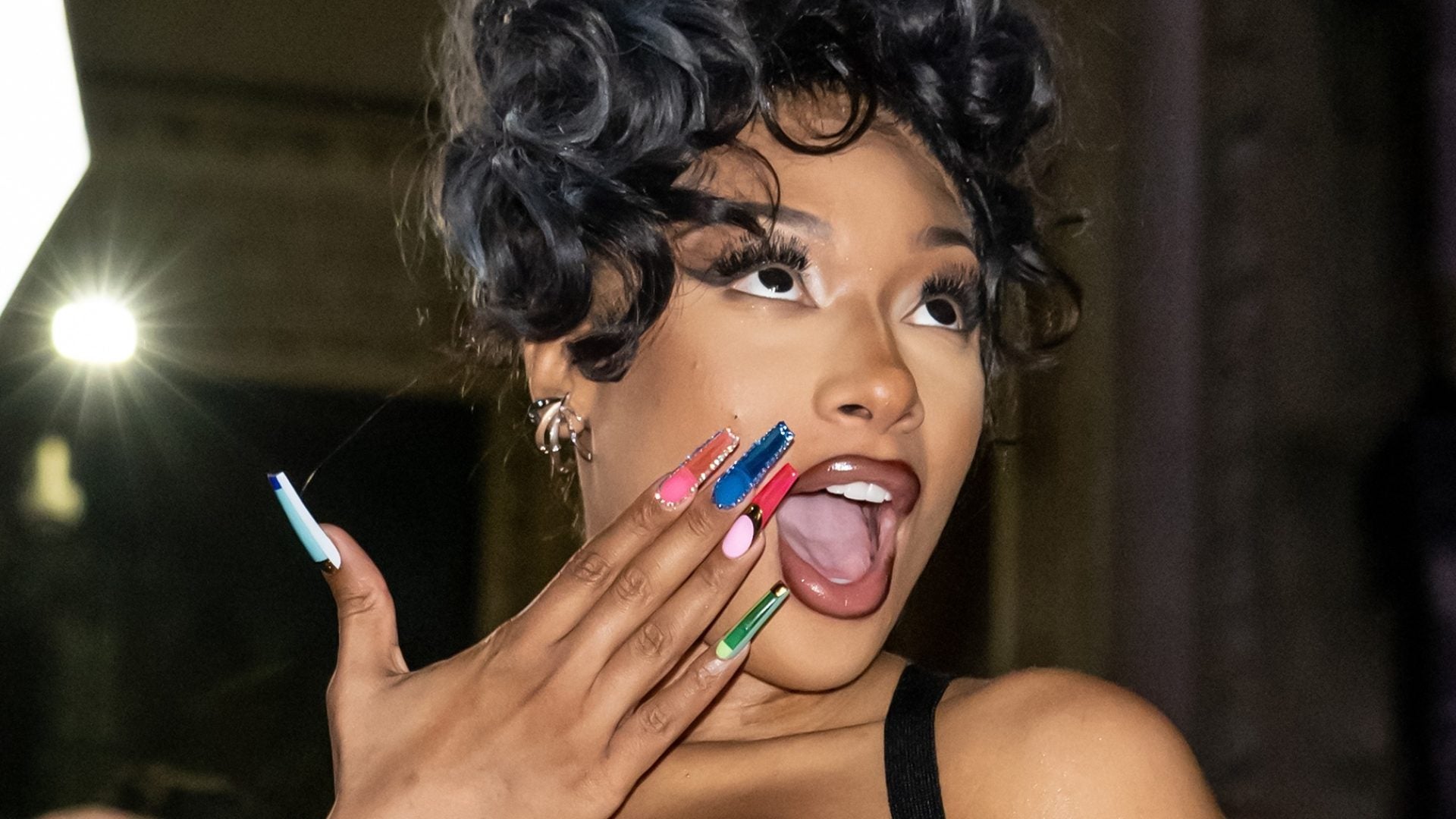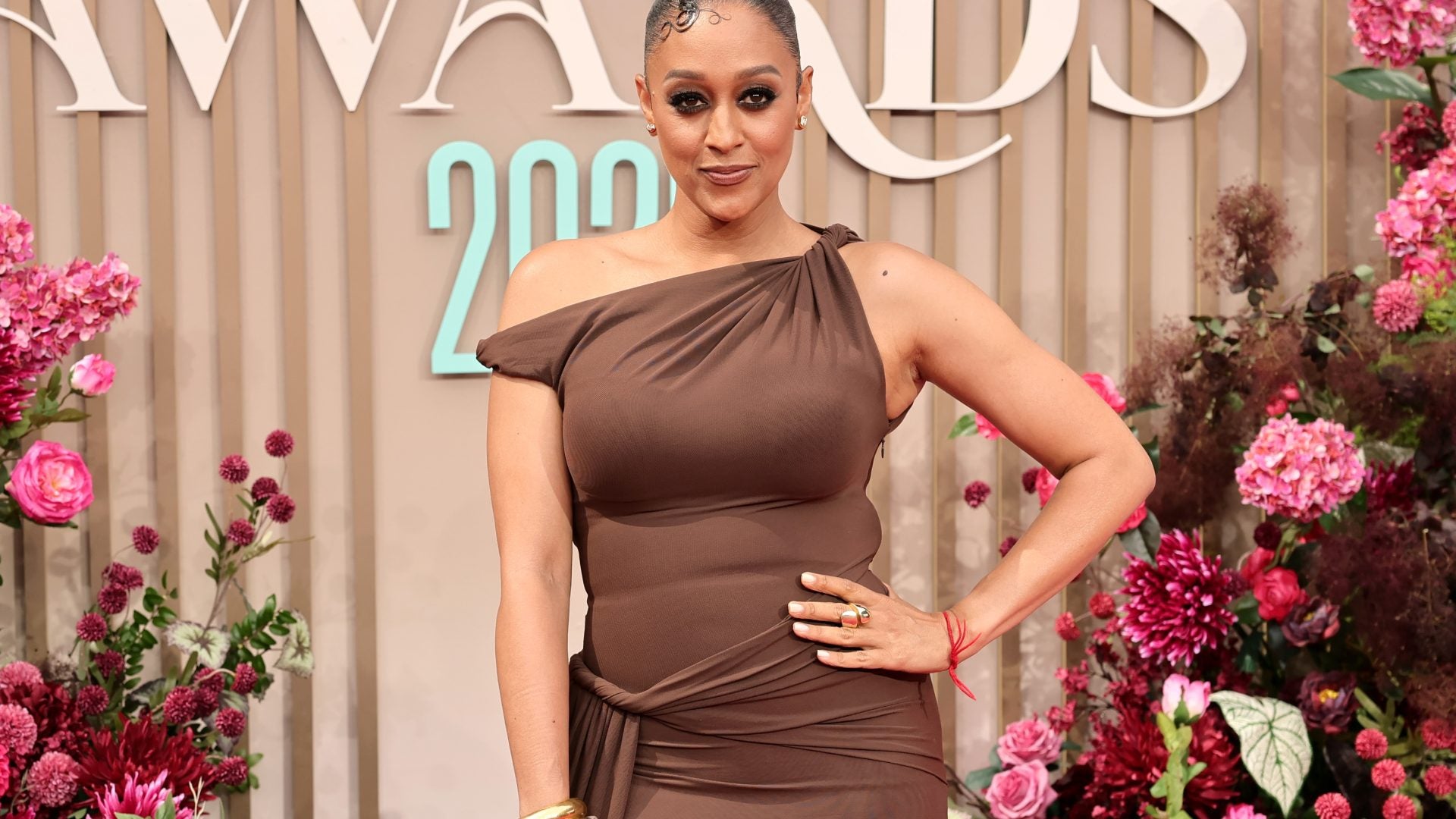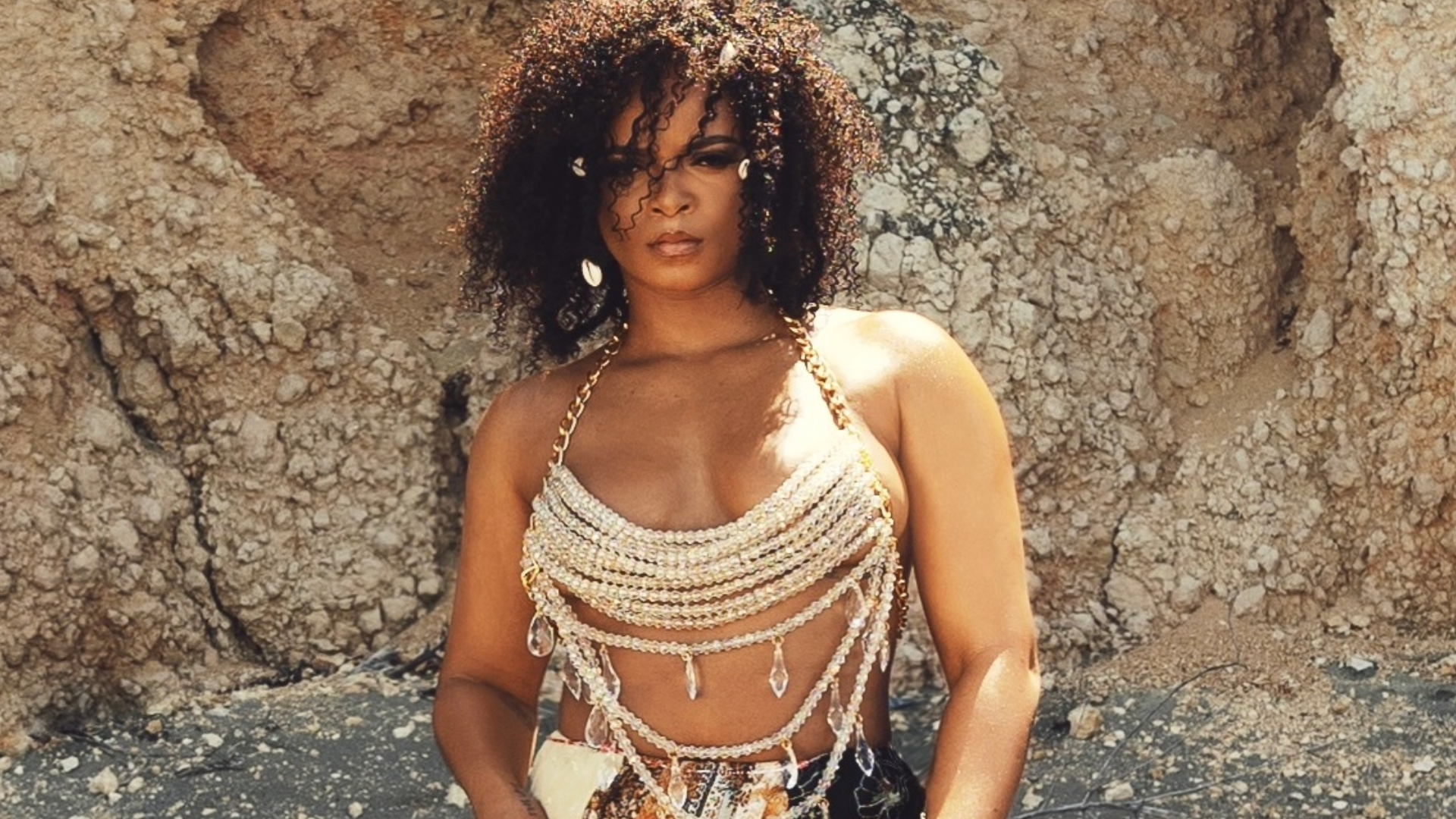
It’s Black Maternal Health Week. Here’s everything you should know to protect yourself and those you love.
When Tisheila Justice was pregnant with her twins 11 years ago, an idyllic birth plan that started in a birth center ended in a high-risk hospital delivery with long-term trauma. “At 35 weeks pregnant, I felt intense pain. My husband insisted we go to the emergency room after hours of suffering,” she recalls. One doctor dismissed her concerns. Another attempted to remove the cervical cerclage—a safeguard to prevent preterm labor—without pain medication for more than two hours until she was in excruciating pain and swollen. Eventually, a third doctor removed it in the operating room.
The ordeal undermined her confidence. “I shrunk myself and lost my voice, afraid of getting dismissed again. I even told myself ‘don’t be dramatic,'” she says. The labor itself was brief—45 minutes and unmedicated—but the trauma shaped the experience. “My body was so shaken up that I had a panic attack once I got to the hospital,” she says.
Long after delivery, consequences remained. “For months, I couldn’t pee without warm water. It felt like burning every time,” she says, noting the pain when providers checked her cervix. “For about a year, sex was very painful.”
It’s impossible to talk about Black reproduction without reference to the three to four times higher risk of dying from complications in the first year after giving birth compared to white women—a statistic that haunts Black women who desire to expand their families. But while this “maternal mortality crisis” dominates discussions, it overshadows another epidemic: the overlooked trauma of Black women who didn’t die but lost a piece of themselves during birth.
The World Health Organization defines maternal morbidity as “any health condition attributed to pregnancy and childbirth that negatively impacts a woman’s well-being or functioning.” Though most describe the psychological impact of birth trauma, maternal morbidity encompasses cardiovascular issues, high blood pressure, infections, especially from C-sections, diabetes, blood clots, and more. Countless Black women, like Justice, live with the long-term mental and physical scars of pregnancy and birth.
Defenseless in a harmful system
Black women are twice as likely to experience maternal mental health issues and half as likely to receive treatment. They experience postpartum depression and anxiety at rates more than double our White counterparts. Black women living in smaller cities or rural communities have higher risks, as much as 80 percent higher.
Justice, now a licensed clinical social worker specializing in trauma, says expectations of strength leave Black women vulnerable to muted emotions or being mischaracterized as angry, which compounds with provider bias, leaving them less likely to get support. “It is hard for Black women to let down their defenses in a system that isn’t trying to protect them.”
Telika Howard, a mother of seven, says her best birth experience was in 1999 at a small birthing center with a certified nurse midwife. “I didn’t know how good I had it, and it set the precedent for me to know that I was capable of having an unmedicated birth.”
The five births that followed, however, were marked with invalidation, disrespect, and racial bias. She experienced providers administering birth control without consent and staff making decisions about her children without permission.
Her story also reveals how oppressive systems interact with medical bias to create additional traumas. “With my fifth child, a pediatrician called the police because my son was not at birth weight at one week old,” she says, saying it was retaliation for her refusing to supplement her breastfeeding. “Police came to my home while I was caring for my other children.”
These traumatic interactions left lasting scars. “I grieved every Mother’s Day and my kids’ birthdays whenever I thought about their birth stories,” Howard says. Others told her to be grateful for having healthy children, but the grief she felt informed feelings of unworthiness and unaddressed long-term postpartum depression.
Trauma lives in the body
Suzanne Mungalez, PsyD, PMH-C, a perinatal psychologist and owner of The MaMA Space, notes that racism shapes the treatment Black women and birthing people receive during care and contributes to disparities. “Black people in the United States are 60% more likely to develop pre-eclampsia and twice as likely to have perinatal mood disorders,” she says. “It is racism, not race, that contributes to these numbers.”
Tonya Abari “vomited every day for 10 months straight” due to hyperemesis gravidarum, a severe form of pregnancy-related nausea during her first pregnancy in 2014. “From the moment I found out I was pregnant until after my daughter was cut out of me, I threw up 10 to 20 times a day,” she says. Her providers offered virtually no support but encouraged her to lose weight and rest. She wonders if racism influenced their inaction.
Another mother, Mariah Maddox, was given an undesired epidural at nine centimeters to lessen her urge to push. “When it came time to push, I felt so disconnected from the birthing process. I couldn’t feel myself pushing, and they kept saying I wasn’t advancing,” she says. When her son was born, she felt joy but couldn’t cry. “I went on to have problems with breastfeeding and bonding and feel like it all started there.”
Mungalez explains that chronic stress from discrimination, called weathering, accelerates aging and increases health risks. “Even when the brain forgets, trauma continues to live within the body,” she explains, noting that the impact can manifest as hypervigilance, avoidance, isolation, and distrust, but also chronic health issues. “This includes premature aging, heart disease and hypertension, diabetes, fertility challenges, poor pregnancy and birth outcomes, and even higher mortality rates.”
Trauma, as mentioned, also impacts the ability to bond with children and other loved ones. Perinatal mental health struggles, including childbirth PTSD have been linked to delayed parent-child bonding, feeding issues, exacerbation of preexisting mental health concerns, and impacts on child development, especially when exacerbated by birth trauma. (Women with birth trauma have fewer children, too.)
“This trauma also reduces the likelihood they seek care as other concerns arise,” Justice says, highlighting racial disparities in cervical cancer diagnosis, cardiovascular issues, and other chronic health problems.
Healing, moving beyond trauma
The frequency with which Black women experience life-long consequences from birth is unacceptable. Still, shifts are in progress. It’s frequently discussed that having a doula improves outcomes, including shorter labor and fewer interventions. Programs like Dads to Doula that prepare Black men to support their partners during birth demonstrate that culturally-affirming initiatives are developing. Relatedly, more Black families are seeking Black medical providers, and a growing number of families are opting out of hospitals for Black-led midwifery and home-based care, especially post-trauma.
Abari sought an all-Black midwife team for her vaginal home birth after cesarean (HBAC) when her first pregnancy ended in a C-section after 50+ hours of labor. When she noticed leg pain and postpartum swelling after her second delivery in 2021, her team encouraged her to seek emergency care, where she was connected with a Black-led ER team that supported her through a mild stroke requiring emergency surgery. She believes this saved her life, and growing evidence shows that when Black people have Black providers—racially concordant care—health outcomes improve for patients.
Still, healing trauma isn’t just connecting with the right care team; it’s connecting to the self by “rebuilding the connection with mind and body” and shedding the strong Black woman facade. “I give clients the ability to create their own life story by making decisions based on their values, not their fears,” says Justice.
Therapy modalities like Cognitive Behavioral Therapies, EMDR, and somatic therapies can help manage symptoms but aren’t a fix-all amid ongoing discrimination. “You cannot reframe racism,” Mungalez says, noting therapy can feel invalidating if it feels like Black people are asked to stop feeling anxiety about very real experiences.
She says acknowledging trauma builds a sense of agency and self-advocacy that can inform doctors of history and needs, preventing future trauma. Community support and creative outlets reduce perinatal mental health symptoms and help achieve this. And as always, Black mothers are creating initiatives to offer the support they didn’t receive and find ways to grow in community, despite trauma.
“My experience being dismissed played a large role in why I advocate and support moms with birth trauma,” says Justice. Maddox found relief through photography and writing, including Motherhood: The Thread That Holds Us Together, a portrait study capturing the raw, vulnerable, and intimate moments of the motherhood journey that aren’t often seen, to combat isolation. Howard’s experience was the catalyst for her to become a doula, an International Board Certified Lactation Consultant, and an advocate for Black mothers. And Abari creates safe spaces for mothers and birth workers to express and amplify their stories.
According to Mungalez, there’s historical precedent. She notes that ancestrally, many African postpartum traditions are anchored in the community that addresses all the birthing person’s needs, including accompaniment through traumatic moments. Now, as the role of racism and anti-Blackness in modern health and social disparities are removed from our country’s dialogue, community-anchored healing is more important than ever. Black women continue to be the community they hope to see.
“Every time I helped someone else, I healed a part of me,” says Howard.
